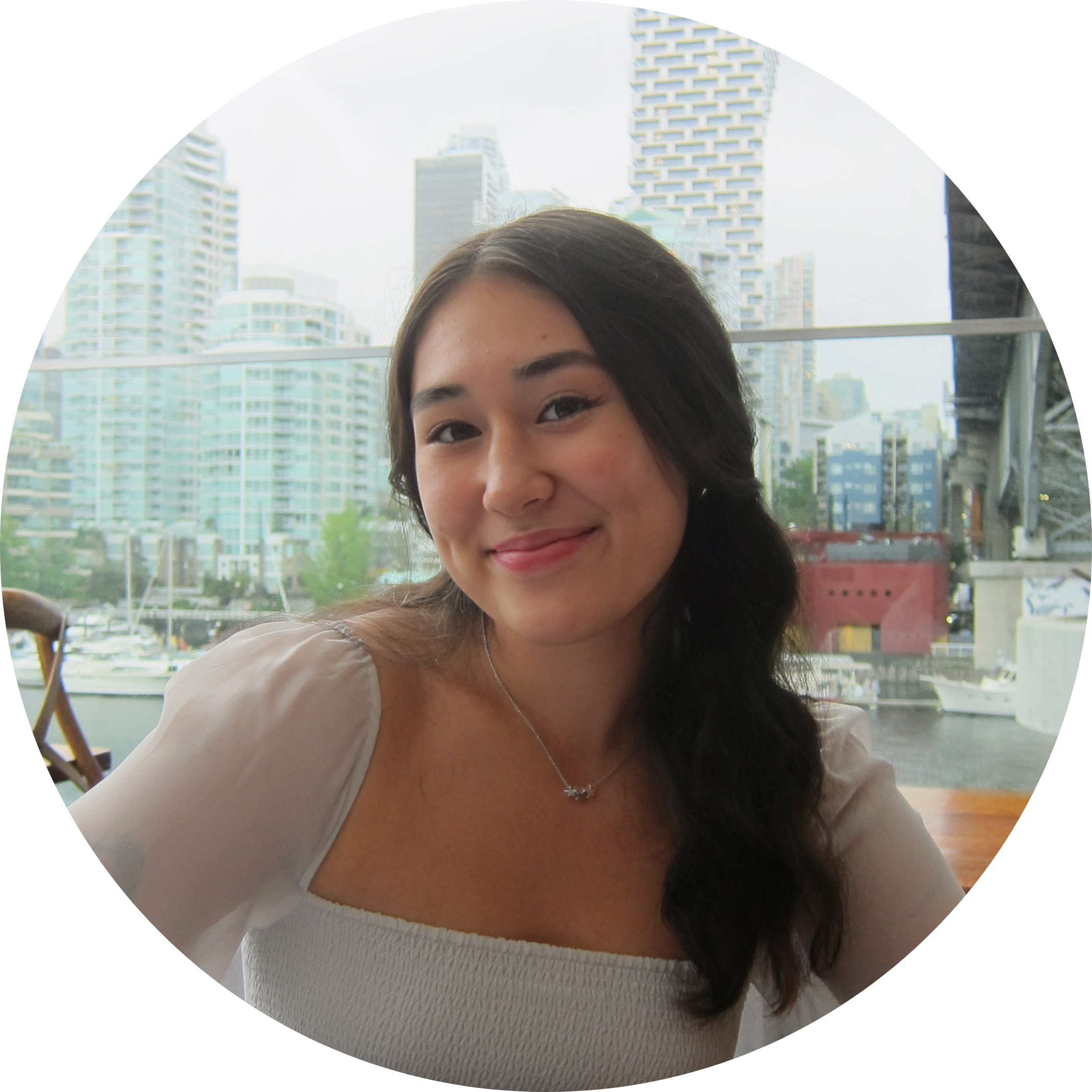Julianna Yue 余美鳳 (she/her) is a 2nd generation settler of Chinese, Michif and mixed European ancestry, born and raised on the traditional, ancestral, and unceded territories of the xʷməθkʷəy̓əm (Musqueam), Skwxwú7mesh (Squamish) & səlilwətaɬ (Tsleil-Waututh). She is graduating with a BA in Sociology and First Nations and Indigenous Studies, but has been deeply involved with the Asian Canadian and Asian Migration program throughout her academic journey. First becoming a part of the ACAM community via coursework in 2021, she became a member of the 2021/2 ACAM Dialogues cohort (Building Anti-Racism on Campus) before taking ACAM390 in the summer of 2023. As a student research assistant with INSTRCC (Initiative for Student Teaching and Research in Chinese Canadian Studies) and ACRE (Centre for Asian Canadian Research and Engagement), she has contributed to several projects that emphasize the importance of intergenerational dialogue, and the amplification of marginalized voices in local and diasporic communities.
What is a favourite memory or story you have from ACAM?
My favourite memory from ACAM was as a student in the ACAM390A course. That year, we travelled throughout Asia, to Hong Kong, Singapore, and Malaysia. It was my first time venturing outside of North America and was an all around exciting experience. What made the trip even more special were the friendships I formed. Traveling together, sharing meals, late-night conversations, and navigating unfamiliar cities brought us closer as a group and I’m incredibly grateful to all the friends I made on that journey. After taking the course as a student, I was given the chance to be a Program Assistant for the course the following year when the class travelled to Kaiping, China. This too was an incredible experience and allowed me the opportunity to speak at Wuyi University and the Cangdong Heritage Education Centre. Additionally, I was able to visit my 爺爺’s and 嫲嫲’s villages in Taishan. This year, I’m lucky enough to be a Program Assistant again as we travel the West Coast of the USA and Hawai’i.
What connections and ideas were you able to foster through ACAM?
Through ACAM, I have been able to foster creativity and community. Projects like those in ACAM320B allowed me to bridge personal passion with academia, further allowing me to engage with my own histories and identities. While I’ve only begun to explore what it means to be both a racialized settler and an Indigenous person, ACAM has given me space to explore, ponder, and question. ACAM fosters collaborative, community-based work that goes beyond the classroom. The ACAM community reminds me that academia is more than research and lectures, but is also a space that can be grounded in care and community.
 Faculty of Art
Faculty of Art
